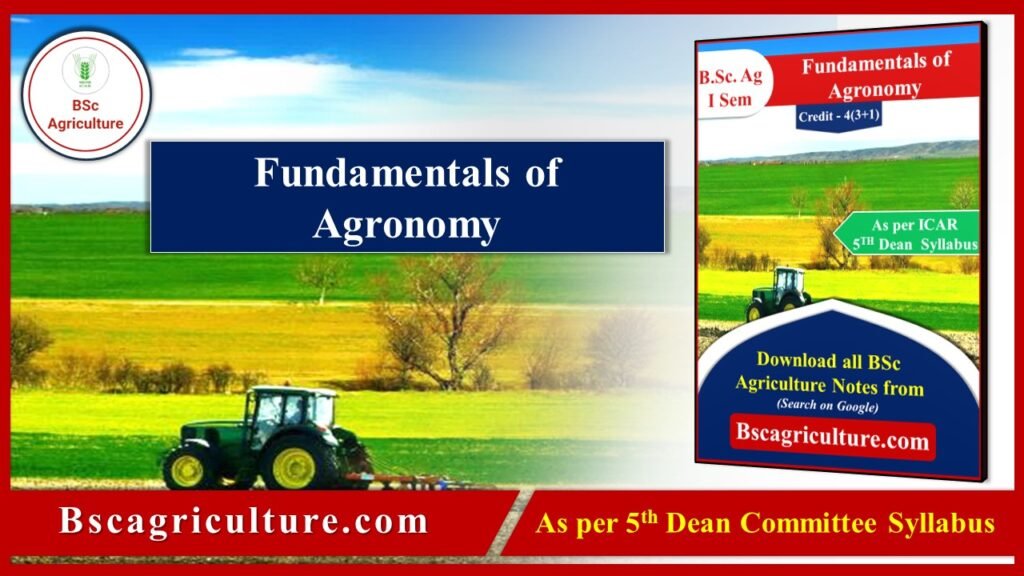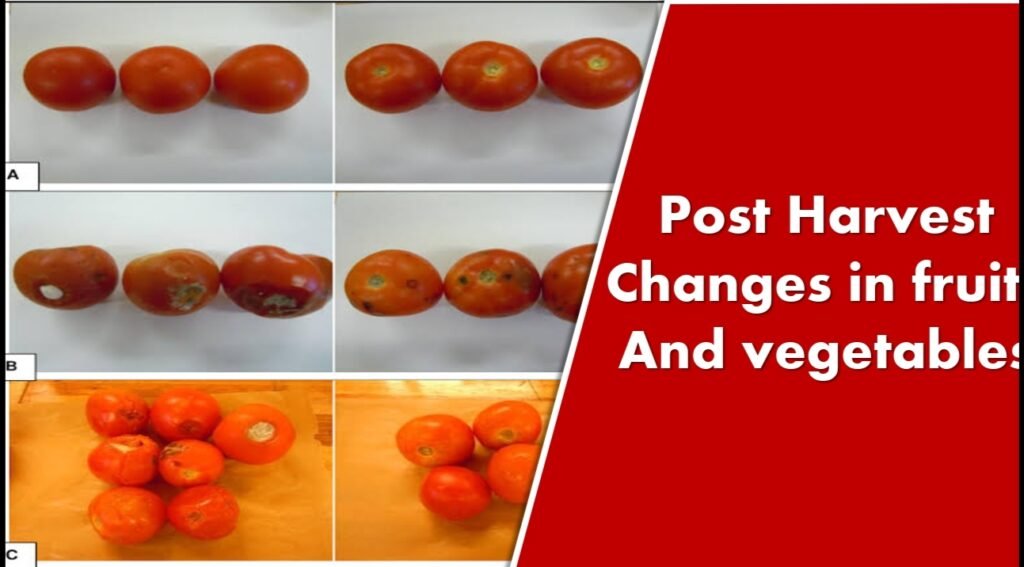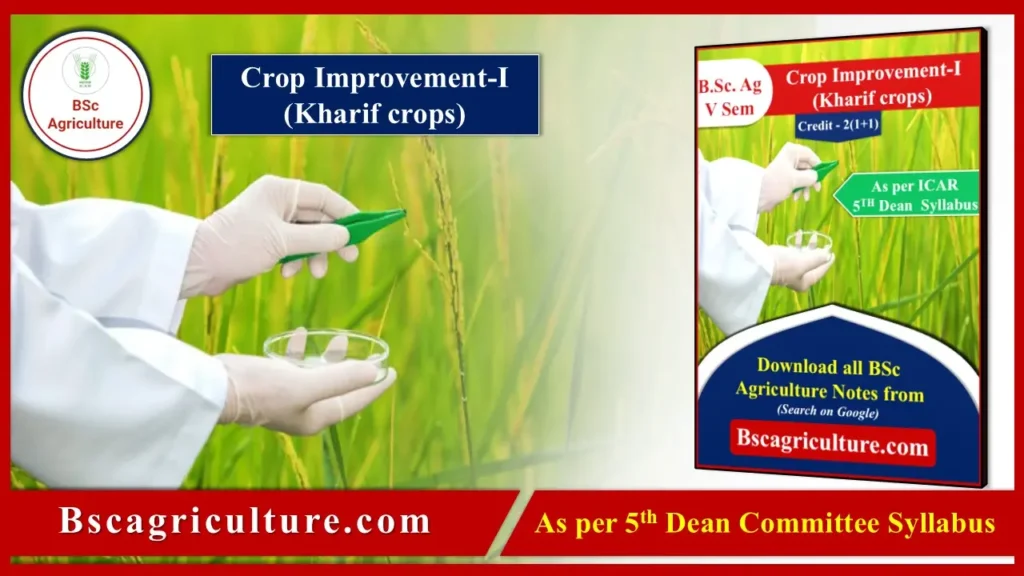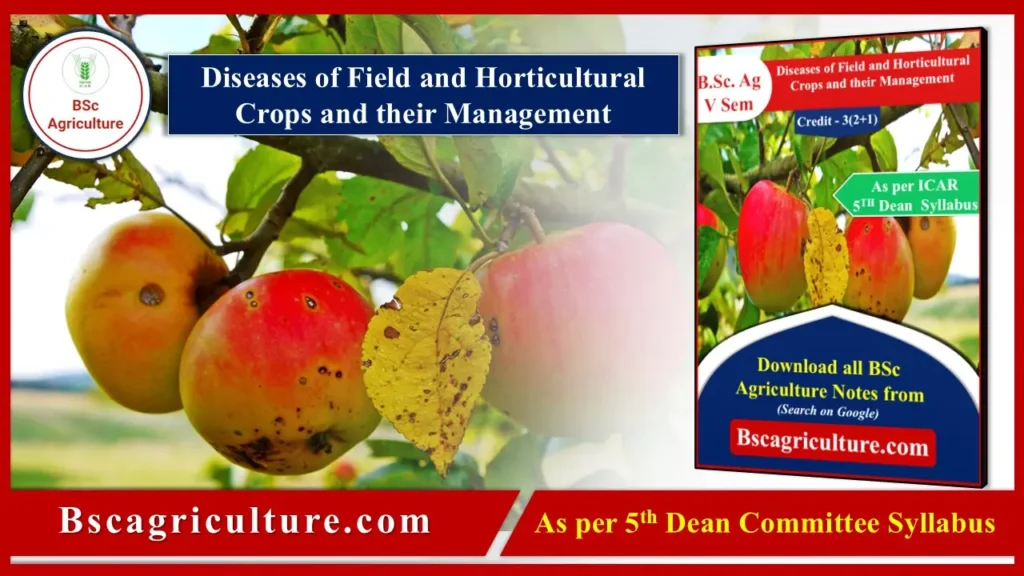ICAR JRF Agronomy Syllabus : ICAR AIEEA (PG)- Agronomy
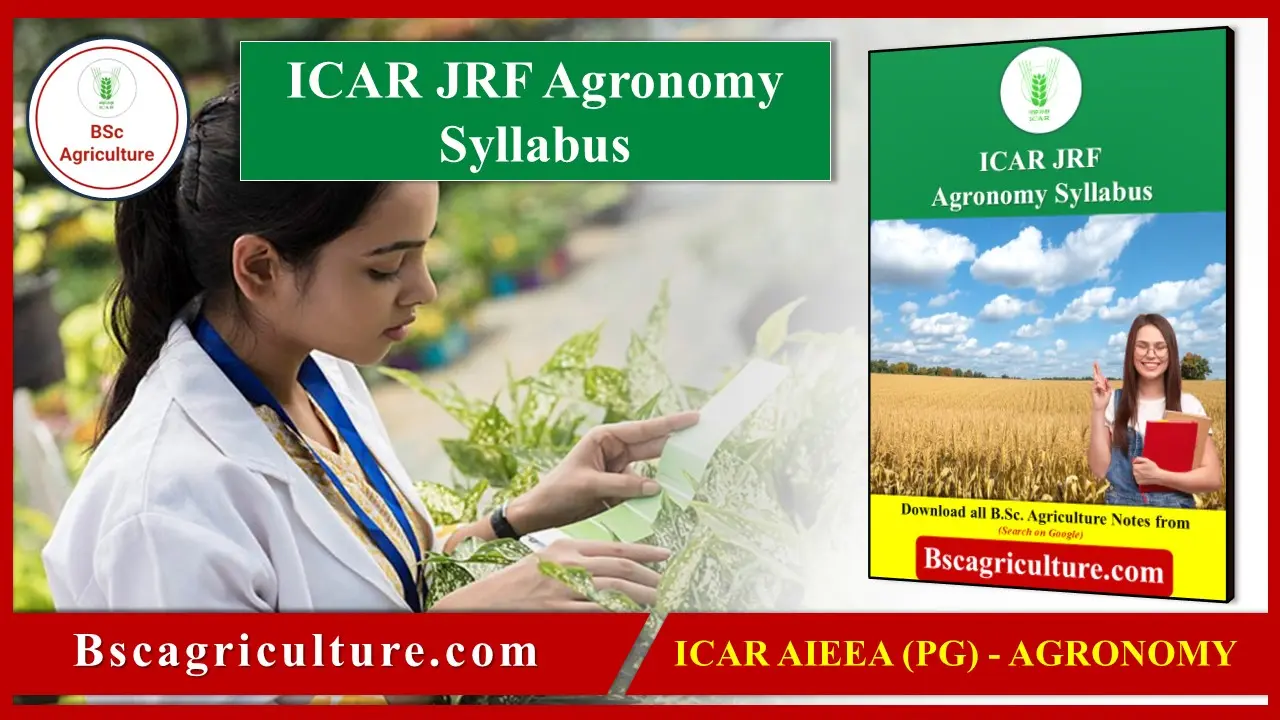
ICAR JRF Agronomy Exam is conducted by NTA under ICAR AIEEA-PG Examination every Year. Here we have provided Complete ICAR JRF Agronomy Syllabus.
About ICAR JRF Exam
ICAR JRF Exam (AIEEA- PG) will be conducted at nearly major cities of India, enabling participation of a large number of candidates seeking admission in Master degree programmes in Agricultural Universities in different disciplines of Agriculture, Agronomy, Horticulture, Forestry, Veterinary, Animal Sciences, Agricultural Engineering, Community Science, Fisheries, Dairy Science and other allied sciences. For postgraduate studies, ICARPG Scholarship shall be awarded to limited candidates based on merit in this examination as per their overall merit-rank and seat availability in different disciplines. Also, the eligible admitted students may be awarded NTS(PG).
Seat Allocation in ICAR JRF Exam
30% seats in Master degree programmes in Agricultural universities are admitted through ICAR JRF Exam (AIEEA-PG). All (100%) seats of the four ICAR- Deemed Universities namely, Indian Agricultural Research Institute (IARI), Indian Veterinary Research Institute (IVRI), National Dairy Research Institute (NDRI) and Central Institute of Fisheries Education (CIFE) and CAUs, viz. RLBCAU, Jhansi and Dr. RPCAU, Pusa are also filled up through the same examination. Further, not more than 40% candidates from any one state shall be admitted in any agricultural university in a particular subject and category.
ICAR JRF Agronomy Syllabus
UNIT-I: General
Importance of Agriculture in national economy; basic principles of crop production; cultivation of rice, wheat, chickpea, pigeon-pea, sugarcane, groundnut, rapeseed and mustard, potato. Major soils of India, role of NPK and their deficiency symptoms. Structure and function of cell organelles; mitosis and meiosis; Mendelian genetics: elementary knowledge of photosynthesis; respiration, photorespiration and transpiration; structure and functions of carbohydrates, proteins, nucleic acids, enzymes and vitamins. Major pests and diseases of rice, wheat, cotton, chickpea, sugarcane and their management. Important rural development programmes in India; organisational set up of agricultural research, education and extension in India; Elements of statistics.
UNIT-II: Principles of Agronomy
Crop ecology and geography and Agricultural Meteorology: Agronomy –meaning and scope, National & International agricultural research institutes in India, Agro climatic zones of India, Tillage, crop stand establishment and planting geometry and their effect on crop, Physiological limits of crop yield and variability in relation to ecological optima, organic farming, Precision farming, Integrated farming systems, Principles of field experimentation. Principles of crop ecology and crop adaptation, climate shift and its ecological implications, Agro- ecological regions in India, Geographical distribution of crop plants, Greenhouse effect, Climatic factors and their effect on plant processes and crop productivity, Role of GIS and GPS in agriculture. Weather & climate, Earth’s atmosphere, Solar radiation, Atmospheric temperature and global warming. Crops and atmospheric humidity, Weather forecasting.
UNIT-III: Field crops
Origin, distribution, economic importance, soil and climatic requirement, varieties, cultural practices and yield of cereals ( rice, wheat, maize, sorghum, pearl millet, minor millets, barley), pulses (chickpea, lentil, peas, Pigeon pea, mungbean, urdbean), oilseeds (groundnut, sesame, soybean, rapeseed & mustard, sunflower, safflower, linseed), fiber crops (cotton, jute, sun hemp), sugar crops(sugarcane), fodder & forage crops (sorghum, maize, napier, berseem, Lucerne, oats), medicinal & aromatic plants (menthe, lemon grass and isabgol) and commercial crops(potato, tobacco).
UNIT-IV: Weed management
Principles of weed management, Classification, biology and ecology of weeds, crop weed competition and allelopathy, concepts and methods of weed control, Integrated weed management, Classification, formulations, selectivity and resistance of herbicides, Herbicide persistence in soil and plants, Application methods and equipments, Weed flora shifts in cropping systems, Special and problematic weeds and their management in cropped and non-cropped situations, Weed management in field crops.
UNIT-V: Water management
Principles of irrigation, Water resources and irrigation development in India, Water and irrigation requirements, Concepts and approaches of irrigation scheduling, Methods of irrigation, Measurement of irrigation water, application, distribution and use efficiencies, Conjunctive use of water, Irrigation water quality and its management, water management in major field, crops (rice, wheat, maize, groundnut, sugarcane) Agricultural drainage.
UNIT-VI : Soil fertility and fertilizer use
Essential plant nutrients and their deficiency symptoms, concept of essentiality of plant nutrients, Indicators of soil fertility and productivity, Fertilizer materials and their availability to plants, slow release fertilizers, Nitrification inhibitors, Principles and methods of fertilizer application, Integrated nutrient management, site specific nutrient management.
UNIT-VII : Dryland Agronomy
Characteristics of Dryland farming and delineation of Dryland tracts, constraints of Dryland farming in India, Types of drought and their management, contingency crop planning and mid- season corrections for aberrant weather and its recycling. Watershed management.
UNIT-VIII: Problem soils
Problem soils and their distribution in India, Characteristics and reclamation of these soils, Crop production techniques in problem soils.
UNIT-IX: Sustainable land use systems
Sustainable agriculture: parameters and indicators, Conservation agriculture, safe disposal of agri-industrial waste for crop production, Agro-forestry systems, shifting cultivation, Alternate land use systems, Wastelands and their remediation for crop production.
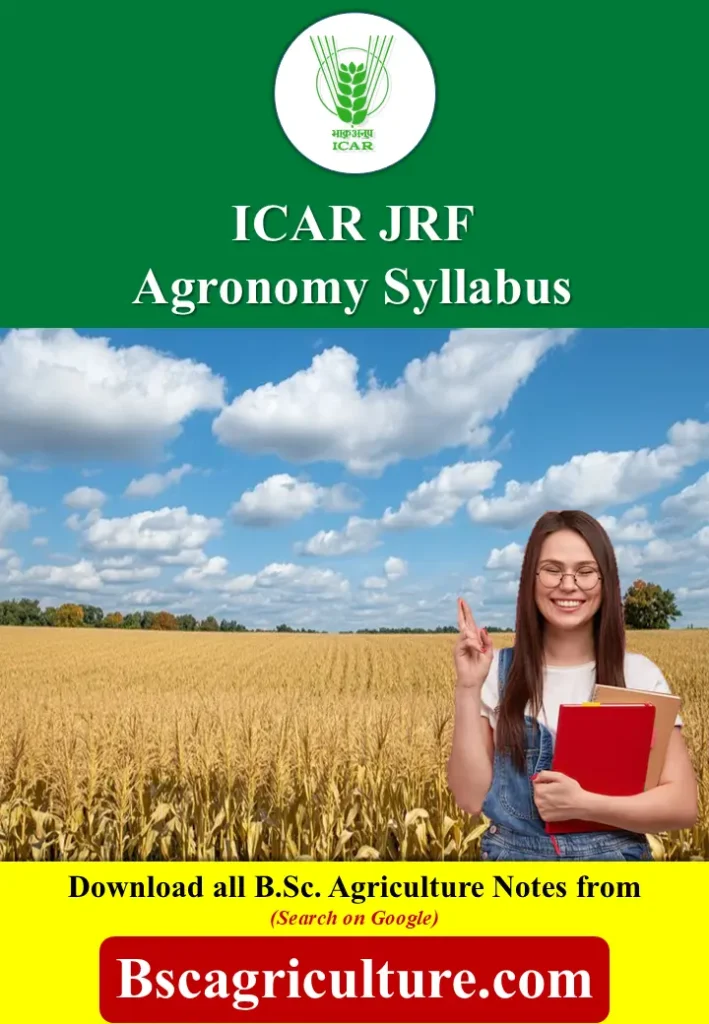
Latest Post
- Post Harvest Handling and Processing of Reeling Cocoons
- Fundamentals of Agronomy
- DIRECT AND INDIRECT METHODS OF GENE TRANSFER IN PLANT
- TECHNIQUES OF IN VITRO CULTURE
- Micropropagation: Techniques, Applications, and Challenges
- ORGANOGENESIS AND SOMATIC EMBRYOGENESIS AND SYNTHETIC SEED PRODUCTION TECHNOLOGY
- SOMATIC HYBRIDIZATION AND CYBRIDS
- APPLICATION OF SOMATIC HYBRIDS AND CYBRIDS IN CROP IMPROVEMENT
- SOMACLONAL VARIATION AND CRYOPRESERVATION
- Post-Harvest Changes in Fruits and Vegetables
- Crop Improvement-I Kharif crops
- Diseases of Field & Horticultural Crops & their Management- i, ii
Join Times of Agriculture
Get the latest Agriculture Magazine and regular important updates right on your phone.
👉 Join WhatsApp Group
